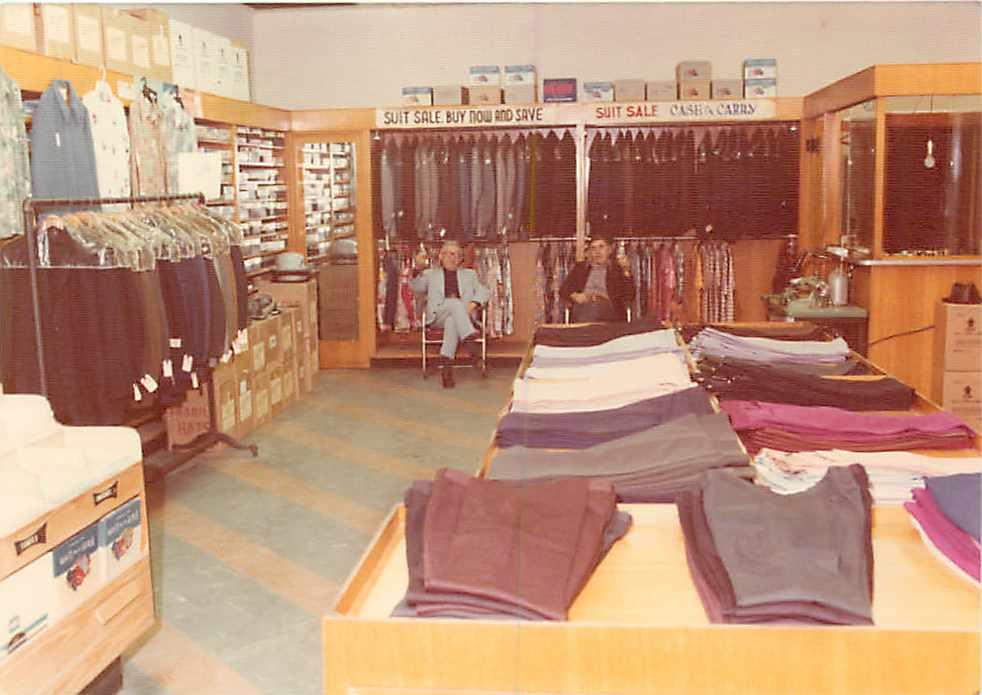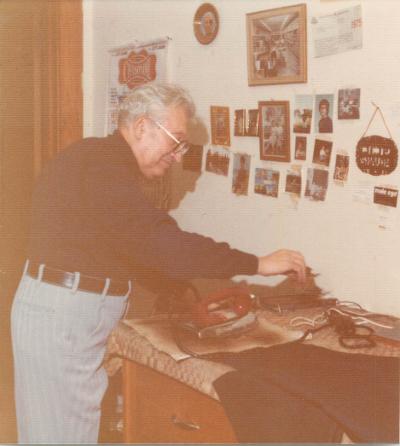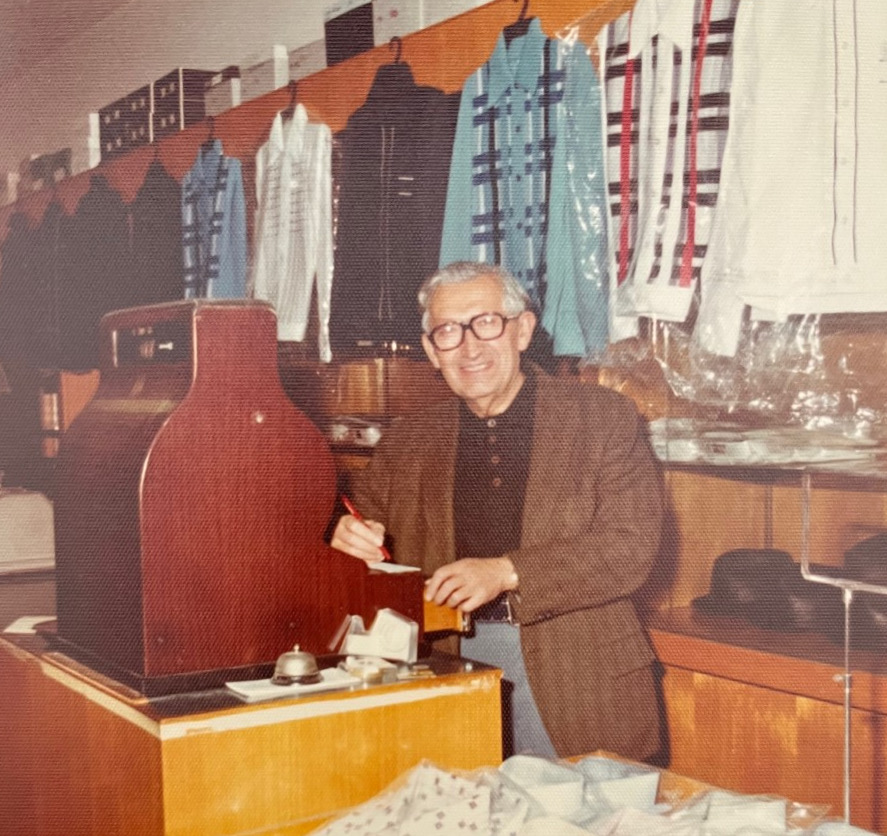My father, George Goldberg (1906-1978), was born in Mogielnica, Poland in 1906. He was born Gershon Gelbart, but when he immigrated to America in 1928 at age 22, he changed his name to George Goldberg–Goldberg was his mother’s maiden name. He was a young tailor in Poland, and he took that skill with him when he left the Old World. His aunt and uncle lived in New York City, and he lived with them for two years. While there, during the day, he worked in the garment district sewing ladies’ dresses and coats. At night, he went to school to learn English.
Goldberg’s Men’s Store
Written By: Helene Goldberg Scharff with contributions from Faye Goldberg Miller
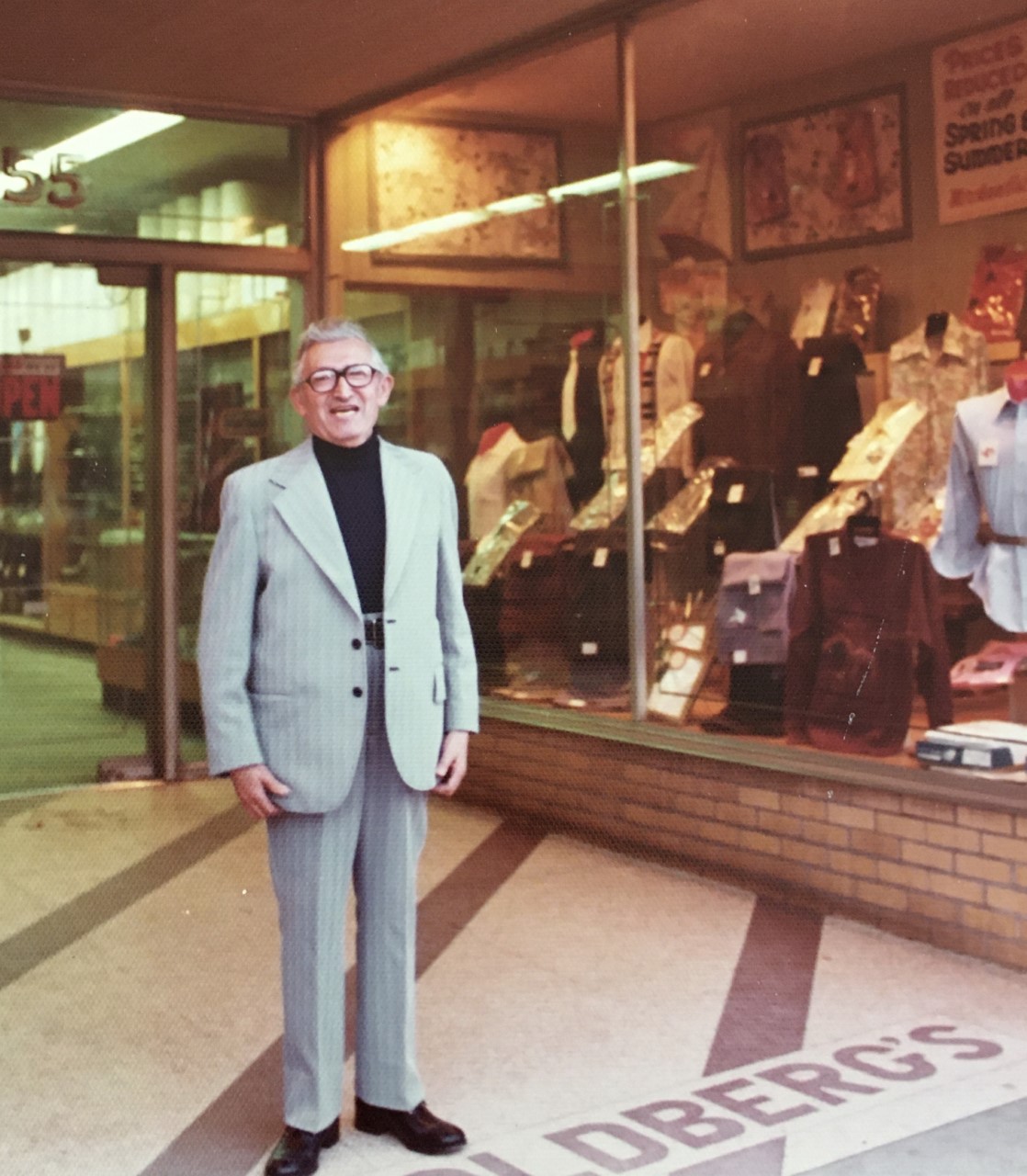
George Goldberg, owner and founder of Goldberg’s Men’s Store, c.1970. Courtesy Helene Goldberg Scharff.
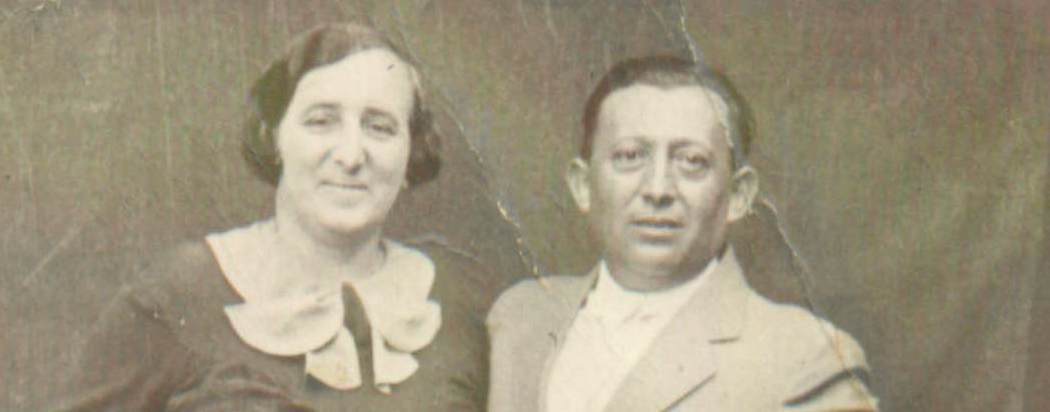
After two years in New York City, my father left for Charleston, where his oldest brother, Israel Geldbart (1893-1960), lived and had established an army-navy store at 587 King Street. Staying with my uncle Israel at the time was my grandfather, Chaim Gelbart (c.1870-c.1939), who was visiting from Poland. Despite my uncle’s insistence that he stay in Charleston and bring the rest of the family to the United States, my grandfather found it difficult to adjust to the secular, non-kosher life and decided to return to Poland around 1930. Sadly, my grandfather, my grandmother Toba (1872-c.1939), and their five children and their families still in Poland all died during the Holocaust. In Charleston, my father worked for his brother briefly–from around 1930 until around 1932. By December 1933, he had decided to go on his own and open a retail store at 511 King Street, where he would sell men’s and boys’ clothing and do all the tailoring needed. My father was a master tailor, and he made dresses for my mother as well as coats and suits for her, myself, and my sister.
My mother, Jeanette Altman Goldberg (1912-1972), was originally from Kaluszyn, Poland. In 1920, she arrived in Charleston with her seven siblings and my grandmother, Wittel Altman (1874-1960). There, the family met up with my grandfather, Charles Altman (1875-1923), who worked as a salesman. After Charles’ death in 1923, my grandmother ran a grocery store on the corner of Radcliffe and Jasper Streets to support her family. She and the children lived above the store. My father was best friends with my uncle, Sam Altman (1904-1964), who was one of the brothers that owned Altman’s Furniture on King Street. Sam introduced my parents to one another, and they married in 1933.
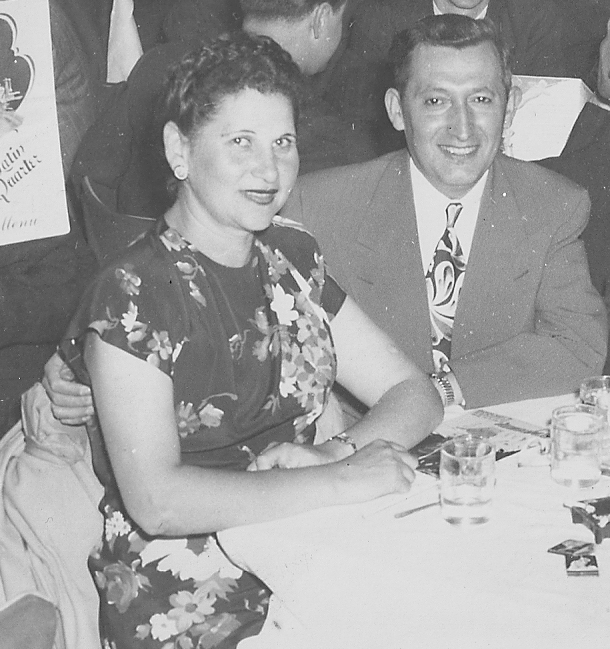
By 1936, my father had moved the business to a storefront owned by the Hottinger family at 569 King Street, a few doors down from the corner of King and Cannon Streets. His clientele mainly consisted of men from the Black community in Charleston, North Charleston, and the surrounding small towns. During World War II, business was very good as he had a large group of customers, including many sailors from other countries whose ships were anchored. The sailors came in to buy American-made clothing. My father would give them store bags to stuff their sailor suits in so they could immediately be wearing the “American” clothing they bought at the store. They took their uniforms in the bags and stored them in lockers until their furlough was over. I remember being in the store when a ship with Polish sailors docked. Many came to the store, and these were the times I observed my father speaking Polish to them.
My father, along with many of the other Jewish merchants on King Street, kept his store open on Saturdays. It was the busiest day of the week. Working in the store at that time (1930’s until around the early-1950’s) was my father, selling and tailoring; my mother, who was the cashier; and Jake Widlitz (c.1893-1969), salesman. Jake was a real character–a vaudevillian for sure. He would entertain the customers, and he would sing all sorts of songs–my brother and his friend, Donald Barkowitz (1934-2014), learned all the lyrics of “Break The News To Mother” from Jake Widlitz, and the two of them sung that song at the infamous “St. Phillip Street Rewisited” Reunion in Charleston. Jake looked like one of the three stooges, smoked a cigar all the time, and loved his booze. He would store his booze in the toilet tank in the bathroom of the store. He also loved the movie star, Jane Russell and had pictures of her displayed in a dressing room at the store. Jake was a great salesman, pushy, and got customers to buy. When he was having a bad day, he would stay in the bathroom and have a few drinks! My father would tell him to go home, which he did, and in a few days, he returned, sober and ready to work! On the weekends, my father hired a young Jewish guy named Walter “Bolo” Berlinsky (1931-2009). My brother, Charlie (1933-2019), also worked on the weekends until he went off to college. My sister, Faye, worked there as well. I was too young at that time to work.
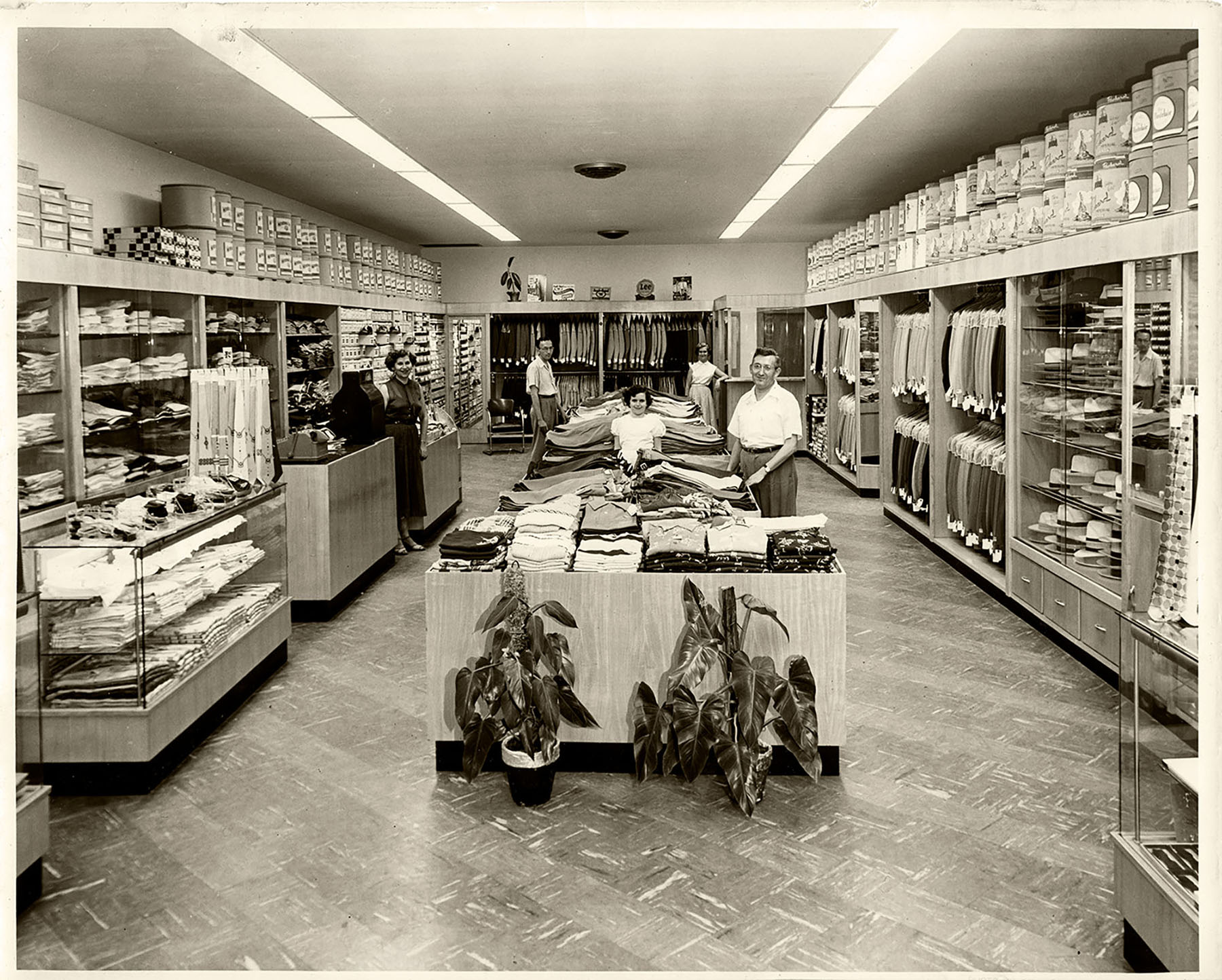
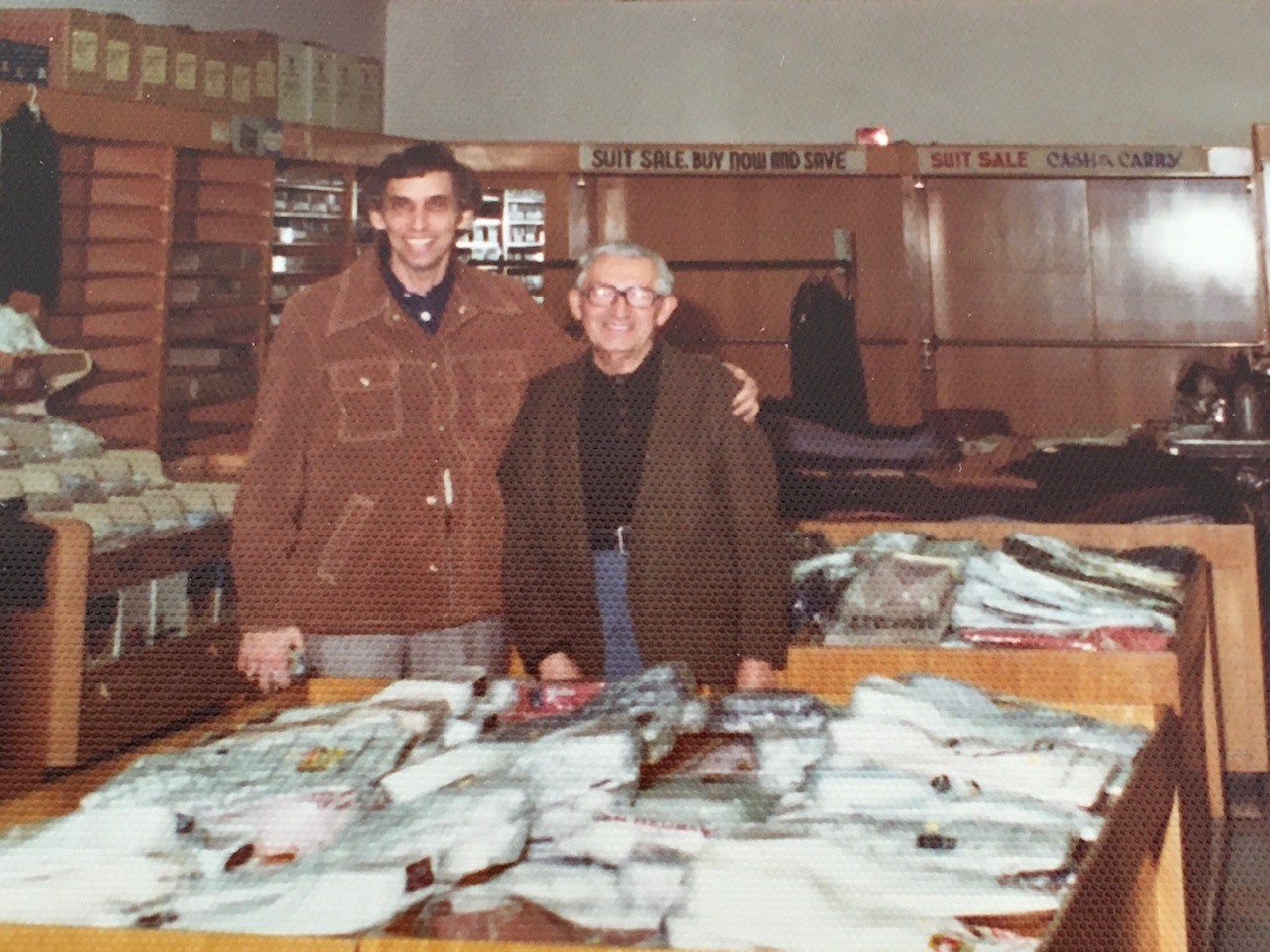
While my father was still at 569 King Street, in the early 1950s, he purchased a store at 555 King Street. There was a beer parlor at 555 King Street originally. The city condemned the beer parlor as unsafe, and the entire building was torn down. In its place, my father built a new store, yellow brick, from the ground up. When he moved into his new store around 1953, the store at 569 King became Doobrow’s clothing store. He stayed at 555 King until he retired in 1976. He took very good care of that store, and he was even the “window dresser.” At Christmas time, he would decorate the store so nicely; he would wrap empty boxes with the most beautiful Christmas paper. My father always felt that helped bring more customers into the store! Working for my father in the store was a black employee named Grayson Reese (birth/death dates unknown). He was a great salesman. He would stand out in the front of the store and talk to people going by and many would come in and shop. Also, on a part-time basis, was an employee, a Jewish man, by the name of Sol Center (birth/death dates unknown). My dad’s best friend, Max Hirsch (1894-1987), would even come in some Saturdays to help work in the store. Max had a beautiful voice and was also a comedian. He had a knack for imitating people and was very entertaining. My mother continued to work the cash register until she became ill, and when I was old enough, at Christmas, I would gift wrap packages. As of this date, the tile flooring at the front outside of the store still exists and reads “Goldberg’s.” After my father retired, he continued to work from home, doing alterations and tailoring for laundries until he died in 1978. One of his biggest customers was Glamour Cleaners at 526 King Street, which was owned and operated by Holocaust survivor Joe Engel (1927-2022).
